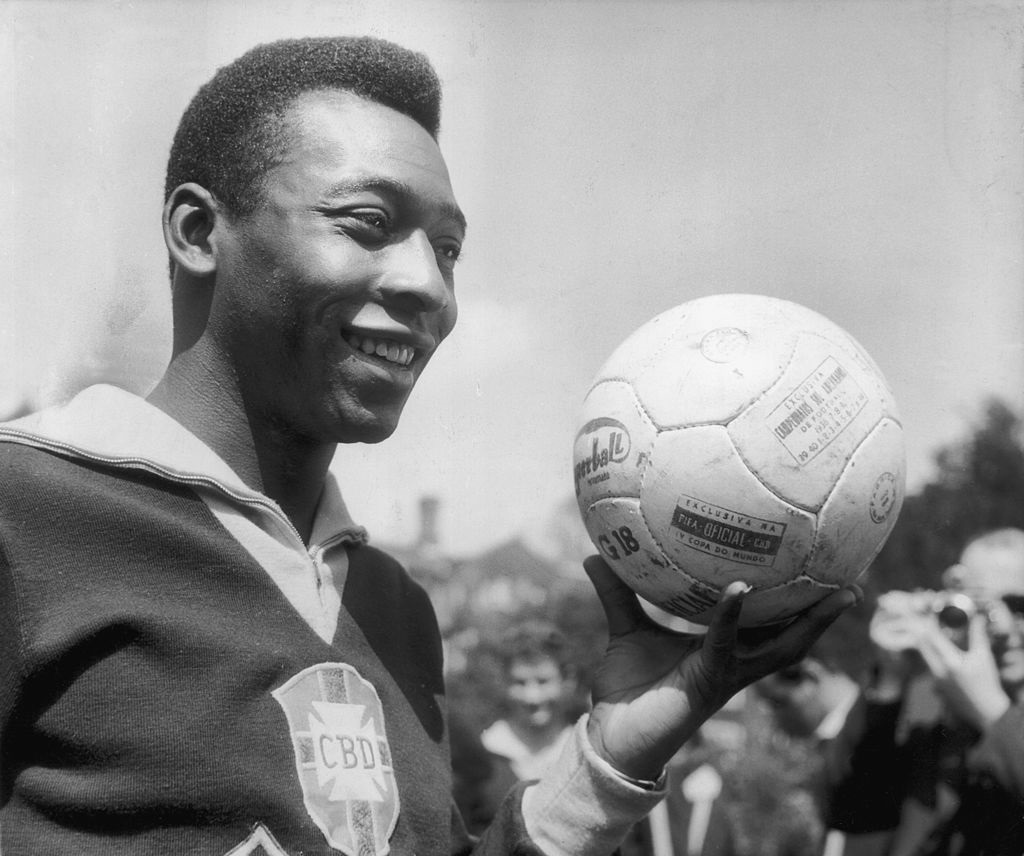US footballer Bobby Smith does not hold back his tears when paying tribute to “King” Pele: the rise of the game in the United States owes almost everything to the Brazilian legend, says his former New York Cosmos teammate.
Still athletic at 71, Robert “Bobby” Smith spoke to AFP at his training center for budding players, the Bob Smith Soccer Academy, in his native New Jersey.
At the edge of the indoor synthetic fields where children train, Smith, who was a top defender in his younger days, gazes fondly at a giant poster of him and Pele, who died Thursday of cancer at the age of 82.
Smith, a professional player in Philadelphia in the 1970s, signed in 1976 with the New York Cosmos for $100,000.
Pele, coming out of semi-retirement at 34, had signed a year earlier for at least 10 times that amount and would lead the Cosmos to the 1977 North American soccer championship, with 31 goals in 56 games.
Pele also played with South African legend Jomo Sono during his time at New York Cosmos.
Smith is an ardent, lifelong fan of Pele. As a young boy, he said he “never thought for a second that we’d be on the same team.”
The thought brings a smile to his face even today.
‘Like little kids’
Pele was key in attracting an array of other talent to the Cosmos team: After American goalie Bob Rigby, recruited at the same time as Smith, came Italian Giorgio Chinaglia, German Franz Beckenbauer and Brazilian Carlos Alberto.
“It’s almost like we were little kids every day when we were around him,” Smith says.
He is moved to tears as he stands before a photo of Pele’s last match, in late 1977, when the star reached out to affectionately touch the younger man’s cheek.
He was a surprisingly humble man, says Smith, “just so kind to everybody. He had no big ego.”
Pele, who was born Edson Arantes do Nascimento, “was a great teammate, and he cared about his teammates, all of us. He wasn’t just a superstar.”
And yet Pele was undisputedly one of the world’s greatest sports superstars, the only player in history to win three World Cups (in 1958, 1962 and 1970).
The global icon hung up his boots for good after a friendly match at New York’s Giants Stadium in October 1977 between Cosmos and his old Brazilian club Santos.
But he was already “the biggest influence on soccer in this country” in its still faltering early days in the 1970s and ’80s, Smith says.
‘Legitimacy’
“Him coming here just brought so much, like, legitimacy to the sport. You know, people started wanting to watch it. And he brought all the stars to the game,” Smith said, referring to foreign standouts like Johan Cruyff, Bobby Moore and George Best.
“He played New York and it was 70,000 people” who came to watch.
“We wouldn’t have the national program we have without Pele coming here. Not even close. (We) would be years and years behind,” Smith says.
Pele, he added, had an “unbelievable” impact on fanning US interest in the sport; he helped “legitimize the game.”
Does American soccer today need a “new Pele,” someone with such incredible on-field vision, superior athleticism and leadership ability?
For all his gratitude to Pele, Smith says the US soccer world needs to grow on its own.
“What is important to us as a country is to develop our own American players,” he says.
Pele, along with the Beckenbauers, Albertos and Bests, helped establish the US game. But “now I think we’re getting on our own standing… Our national team did much better this World Cup.”
Smith hopes, he added, that the trend will continue, with the United States, Canada and Mexico set to co-host the 2026 World Cup.
.
